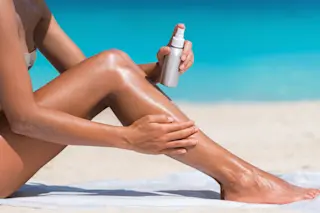(Credit: Maridav/Shutterstock) In my youth, a popular song advised its listeners — purportedly a class graduating in 1999 — to “wear sunscreen.” It’s the narrator’s number one tip for the future, as “the long term benefits of sunscreen have been proved by scientists.” Apparently my fellow millennials didn’t get the message. According to a study in the Journal of Consumer Affairs, my generation doesn’t know much about how important sunscreen is to health and continues to sunbathe — particularly people with low self-esteem and narcissistic tendencies. The actual title of the paper is a thing to behold: I Know, but I Would Rather Be Beautiful: “The Impact of Self-Esteem, Narcissism, and Knowledge on Addictive Tanning Behavior in Millennials.” It’s easy to see write this off as another story in the vein of “Those darn millennials!” but the findings actually reveal a lot about a huge public health hazard, and help ...
Millennials Want to Tan, No Matter the Risks
Understand the importance of sunscreen and why millennials often overlook it despite high risks of skin damage.
More on Discover
Stay Curious
SubscribeTo The Magazine
Save up to 40% off the cover price when you subscribe to Discover magazine.
Subscribe













